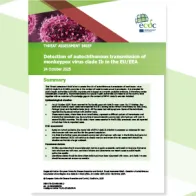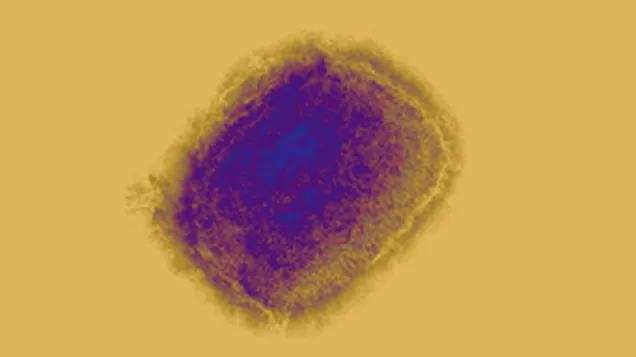Local transmission of clade 1b mpox cases detected in EU/EEA, ECDC urges renewed vigilance
Locally acquired mpox cases have now been confirmed in four countries. Spain reported its first such case on 10 October 2025, and the Netherlands on 17 October 2025. These have been followed by additional cases reported in Italy (2) and Portugal (1). This development is distinct from the previously reported travel-associated clade Ib cases between August 2024 and October 2025, mostly among returning travellers from mpox-endemic areas outside of the EU. These new cases have been reported among men, some of whom identify themselves as men who have sex with men, with no recent travel history to mpox-endemic areas. This indicates that transmission may be ongoing in sexual networks among men who have sex with men in European countries.
Transmission among gay, bisexual, and other men who have sex with men and their social networks has also been recently reported in California, USA, after the detection of three unlinked clade Ib cases.
While the immediate risk to the general population of acquiring the disease is low, the overall risk of infection is moderate for men who have sex with men. The risk of severe disease may be higher for those living with untreated HIV. Some uncertainties remain regarding the transmissibility and clinical severity of clade Ib compared to the clade IIb virus that has circulated since 2022. Among 29 clade Ib cases reported to ECDC before the current cases, seven were hospitalised for treatment, although with such a small number of cases, any estimation of severity in comparison to clade IIb is uncertain.
To prevent further spread, there is a need for a multi-pronged public health response. This includes ensuring testing is easily accessible, especially in sexual health clinics, and that mpox vaccination is actively offered to gay, bisexual and other men who have sex with men. Prompt identification and isolation of new cases and contact tracing to identify contacts and offer them vaccination are essential to control transmission. Public health authorities should work closely with civil society and community-based organisations that serve men who have sex with men to promote awareness and vaccination uptake, using respectful, non-stigmatising language and targeted communication channels.
Mpox is usually acquired through direct contact – such as sex or skin-to-skin contact – with people who have the disease. Vaccination offers the best protection, and individuals at higher risk of exposure, such as gay, bisexual, or other men or transgender people who have sex with men, should seek vaccination proactively. They can check with national health authorities or sexual health clinics for information on who is eligible for vaccination and where to access it.
Doctors should consider offering post-exposure vaccination to close contacts of cases, including sexual partners and individuals with other prolonged physical or high-risk contact, because the vaccine has been shown to confer protection even after exposure.
Sexually active individuals should be aware of the symptoms of mpox and how to protect themselves and others. Symptoms include a typical rash (pimples or blisters) on any part of the body, which can be limited to a few lesions or be widespread, sometimes accompanied by fever, cough, sore throat or other flu-like symptoms or swollen lymph nodes. If an unusual rash develops, they should seek medical help by contacting a healthcare professional for testing and advice. It is also important to avoid close physical or sexual contact with others until they are symptom-free.
Read the threat assessment here

This Threat Assessment Brief aims to assess the risk of autochthonous transmission of monkeypox virus (MPXV) clade Ib in EU/EEA countries in the context of male-to-male sexual transmission. It is intended for public health authorities in EU/EEA countries and is based on currently available evidence.
Detection of autochthonous transmission of monkeypox virus clade Ib in the EU/EEA
English (672.37 KB - PDF)Find communication materials here

ECDC has produced several documents that address RCCE and provide examples of ongoing RCCE activities in the EU/EEA countries, as well as tools for public health authorities.
Watch the video

Mpox (previously known as monkeypox) is not a newly discovered disease. The 2022 outbreak however showed that it may spread through a completely different route.



